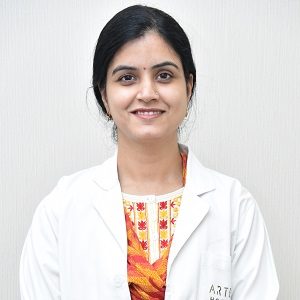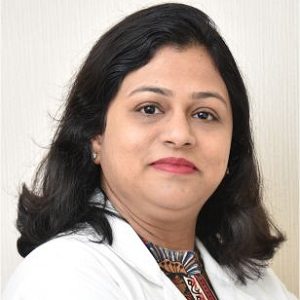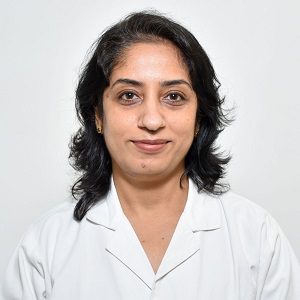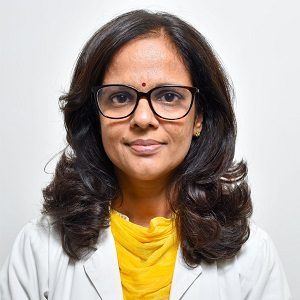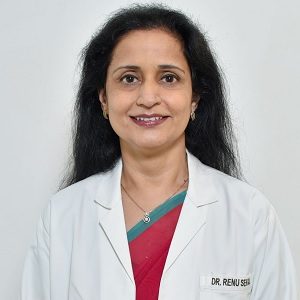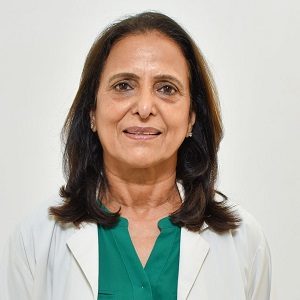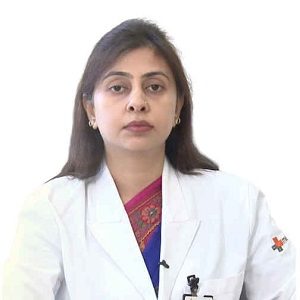Best Doctors in India for Hysteroscopy
- Obstetrician & Gynaecologist, Gurugram, India
- Over 17 years’ experience
Profile Highlights:
- Nidhi Rajotia is one of the best Gynecologists who has over 17 years of experience in obstetrics and Gynecology.
- She has a therapeutic focus on high-risk pregnancies, infertility treatment counseling, ovulation induction, follicular monitoring, hormonal treatment, IUI, and IVF in addition to open and laparoscopic gynecological surgeries.
- Obstetrician & Gynaecologist, Gurugram, India
- 20 years experience
Profile Highlights:
- Parvinder Kaur Arora is a renowned Gynecologist, Obstetrician & Laparoscopic Surgeon in Delhi NCR.
- She went under training in Laparoscopic surgery and Gynaec oncology.
- She completed a fellowship in minimally invasive surgery and achieved the first position in the course.
- Obstetrician & Gynaecologist, Gurugram, India
- Over 14 years’ experience
Profile Highlights:
- Dr. Pooja Bhatia Marwaha is a well-known gynecologist and obstetrician in Delhi/ NCR.
- She is proficient in the clinical and surgical management of women’s problems. Her expertise includes Antenatal and Postnatal Exercise, Cancer Screening, Breast Cancer Screening, Menopause, Pre and Post Delivery Care, and Physiotherapy.
- Obstetrician & Gynaecologist, Gurugram, India
- Over 15 years’ experience
Profile Highlights:
- Priyanka Mishra is a renowned doctor for Obstetric & Gynecological issues in Delhi/ NCR.
- She has completed MBA in Hospital and Healthcare management from NIBM.
- Priyanka Mishra has used her extensive experience to provide consultation for women’s problems and treatment.
- Obstetrician & Gynaecologist, Gurugram, India
- Over 20 years’ experience
Profile Highlights:
- Dr. Smita Vats is a dedicated gynecologist & obstetrician in Delhi/ NCR. She received extensive training in advanced gynecological endoscopy, laparoscopy, and hysteroscopy from renowned surgeons in India and abroad.
- Dr.Smita Vats is especially interested in infertility treatments, gynecologic endoscopic surgeries, high-risk pregnancy management, and adolescent and menopausal issues.
- Obstetrician & Gynaecologist, Gurugram, India
- Over 18 years’ experience
Profile Highlights:
- Dr. Asha Sharma is one of the best Gynecologists & Obstetricians in Delhi/ NCR. She practices Laparoscopic Surgery (Obs & Gyn) to assist patients with their Gynaec problems.
- The doctor provides consultations and checkups for maternal care, PCOS/PCOD, egg donation, diseases in pregnancy, irregular or excessive bleeding, and other menstrual disorders in adolescent girls, etc.
- Obstetrician & Gynaecologist, Gurugram, India
- Over 35 years’ experience
Profile Highlights:
- Dr. Nutan Agarwal is an eminent Obstetrician & Gynecologist.
- Dr. Nutan Agarwal is credited with pioneering various PCOS medications in India, such as Metformin and myoinositol.
- She has also developed several treatments, such as ablation in multiple pregnancies, and formulated a guideline for managing irregular uterine bleeding in the Indian context.
- Obstetrician & Gynaecologist, Gurugram, India
- Over 25 years’ experience
Profile Highlights:
- Dr. Renu Raina Sehgal is a renowned Gynecologist in Delhi/NCR, having 25+ years of rich experience in the field.
- Dr. Renu Sehgal specializes in obstetrics, menopause, infertility, and advanced gynecological laparoscopy and has extensive experience in several other gynecological procedures. In addition to this, she is an expert medico-legal consultancy.
- Obstetrician & Gynaecologist, Gurugram, India
- Over 40 years’ experience
Profile Highlights:
- Dr. Veena Bhat is a senior obstetrician and gynecologist. Her clinical interest lies in Endoscopic management of infertility, Adolescent Gynecology, High-risk pregnancy, Menopausal health, and Minimal invasive surgery in Gynae.
- The doctor performs Gynecological Endoscopy, both Laparoscopy & open (Hysteroscopy); Laparotomy, Endometriosis Surgery, Ovarian Cystectomy, and myomectomy with decent success.
- Gynecologist, Gynae-Oncologist, Gurugram, India
- Over 18 years’ experience
Profile Highlights:
- Dr. Dimple K Ahluwalia is one of the prominent Gynae-oncologists at Medanta-The Medicity at Gurugram in India.
- She has years of experience in treating serious and critically ill patients from different parts of the country.
- She has won numerous awards and honors for her countless contributions to the field of medicine.
Best Hospitals in India for Hysteroscopy
Hysteroscopy
Hysteroscopy is a diagnostic procedure that involves the insertion of a device of smaller diameter into your uterus. The device has a small camera at the end and a light that allows your doctor to view inside your uterus. Usually used for diagnostic or surgical purposes, your doctor may recommend the procedure for several situations. If you are suffering from severe cramps or your doctor needs to evaluate your reproductive health, he or she may recommend this procedure. It will give them the overall condition of your uterus & cervix while allowing them to figure out the cause of the problem.
Uses of Hysteroscopy
Your doctor may use Hysteroscopy :
- To find out any malformations in the uterus
- To easily remove any polyps and fibroids
- Immediately before dilation and the curettage procedure
- For visual confirmation of the results of another test
- Along with a laparoscopic procedure
Why do you need Hysteroscopy?
During the Hysteroscopy procedure, the hysteroscope inserted into your vagina allows the doctor to see inside the uterus. If the doctor finds anything abnormal or the condition is not as expected, he or she can later take a sample for testing. The most common reasons for Hysteroscopy are heavy flow during the menstrual cycle or bleeding during the normal days between consecutive two cycles. You need to have Hysteroscopy if:
- There’s bleeding even after menopause
- Your doctor wants a biopsy (a small tissue sample) of your uterus lining
- Your IUD or Intrauterine Device is out of place
- You show abnormal results for Pap test
- Fibroids, scarring, or polyps are present in your uterus
- You are undergoing sterilization procedure in the form of permanent birth control
- You had one or more than one miscarriage and are having problems conceiving.
Procedure
Your doctor will ask you to stay in the same position as that for a gynecological examination.
During the procedure
The doctor will spread your cervix with the help of a tool known as a speculum. It happens similar to that of a gynecological examination. Next, the doctor will insert the hysteroscope through the opening of your vagina. He or she will continue to move it through the cervix and into the uterus The light and camera of the hysteroscope will allow him or her to see the fallopian tubes and the uterus. Because of this, they can easily diagnose any problems or perform the required surgical procedures.
If you are having the procedure for surgery, your doctor will also put the surgical devices through the tube of the hysteroscope for performing the surgery. Although the procedure is painless, you may suffer from cramps to some extent. Your doctor may ask you to take a sedative before Hysteroscopy so that you can relax during the procedure. The purpose of the procedure will determine the amount of anesthesia used.
Your doctor will perform the procedure in his or her office or the hospital. The time for the procedure may vary from 10 minutes to half an hour, depending on what the doctor is performing. If it is for diagnostic purposes, the doctor will perform the procedure in his or her office with regional or local anesthesia. He or she can also remove small polyps with this. When your doctor is using the procedure in conjunction with a surgical procedure, he or she may perform it in hospital. Also, they will then give general anesthesia instead of local anesthesia.
After the procedure
You may be able to drink or eat immediately after the procedure. Your doctor will allow you to leave within an hour if he or she used local anesthesia and performed the procedure in his or her office. However, you won’t be able to go if your doctor used regional anesthesia until the effects disappear. The time taken for the effects to disappear depends on the amount of anesthesia given. Also, if your doctor used general anesthesia, you can only go home after a few hours. If you reacted to anesthesia in the past, your doctor will ask you to stay in the hospital overnight.
Outcomes
The time taken for recovery depends on the purpose of the procedure. However, you may experience some symptoms after the procedure like:
- Slight bleeding or even spotting for a day or two.
- Mild nausea
- Cramping
- Dizziness or lightheadedness
- Shoulder pain (when the doctor uses carbon dioxide gas).
Your doctor will prescribe you some medications for pain for your easy recovery. If your doctor performed surgery, then you will need to take rest before you return to your normal routine. For faster recovery, you must follow every instruction given by your doctor.
Risks
Similar to any other media all procedure, Hysteroscopy also has some complications associated with it. They may be:
- Infection
- Damage to the surrounding organs like bowel, bladder, or ovaries
- Problems due to anesthesia
- Problems with fluid or gas from the uterus
- Pelvic inflammatory disease
- In rare cases, tearing or even damage to the cervix.
You may need to see your doctor immediately if you are suffering from severe abdominal pain, fever or heavy bleeding after having Hysteroscopy.
Outlook
Your doctor may recommend this procedure for varying reasons. These may be for having a closer look or for a minor surgery that will help to ensure good health and well-being in the long term. You may ask questions to your doctor at any time if you have or you need to. Although the risks associated with Hysteroscopy are low, you must discuss everything with your doctor before the procedure. Recovery is quick and you won’t experience any long-lasting effects. However, you may experience some in the initial days after the procedure.


